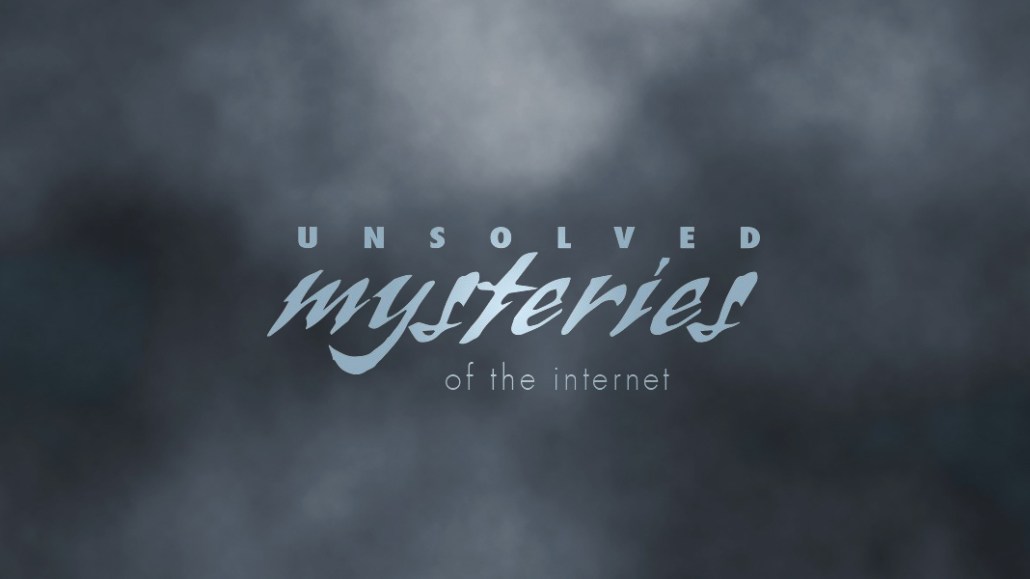Secure your place at the Digiday Media Buying Summit in Nashville, March 2-4
Internet mysteries: Why does last-touch attribution persist?

Although attribution is hot, ad buyers still love to gripe about it.
“I often tell clients that using click data to determine if something is working or not kills a little bit of my soul every time I have to mention it,” said Kevin VanValkenburgh, svp of connections planning at ad agency The Tombras Group.
While the ways to attribute a sale to a given piece of marketing have grown exponentially, many marketers still rely on last-touch attribution, which gives the last channel to present an advertisement to a converting customer the credit for the sale. In this edition of internet mysteries, we explore why last-touch attribution persists even though it ignores many of the factors that lead to a purchase.
Data clutter
Multitouch attribution, which collects and traces all the events that led to a sale, is more effective than last-touch in assigning credit where it is due, but it is also harder to implement. One of the difficult things about multitouch (and other forms of advanced attribution) is that ad buyers use multiple demand-side platforms to buy inventory, and bringing that data together is very difficult since data from the same user often gets duplicated across platforms, said Travis Lusk, vp of analytics at ad measurement firm Integral Ad Science.
Data lakes — repositories where large chunks of multiple types of data are stored in their native format — can help advertisers bring all that data together, said Jon Schulz, CMO of ad targeting firm Viant. But to properly organize and analyze all that data, advertisers need the help of data experts.
Walled gardens
Facebook and Google are notorious for preventing advertisers from getting full view of their data. The inability of advertisers to track user behavior across these popular platforms creates gaps in how they can attribute sales, Lusk said.
And since large social platforms procure enough data to be able to assign their own attributions without input from third parties, advertisers have questioned whether the platforms’ models are fair. These platforms also happen to benefit from the types of advertising that last-click incentivizes.
Frost Prioleau, CEO of the DSP Simpli.fi, said last-touch encourages buyers to allocate spend toward tactics like paid search and site retargeting, where it is easy to assign credit. Tactics like behavioral targeting and geofencing, which advertisers implement long before a consumer makes a purchase, are less likely to receive ad spend when last-touch is used.
“By [using last-touch], they spend too much on customers who were going to buy anyway and not enough on customers in the decision-making process,” he said.
Inertia
Last-touch remains popular simply because it is convenient, and it is tough for advertisers to obtain the right data to properly assign credit to other pieces of marketing that consumers encounter pre-purchase, said Ashwini Anburajan, CEO of mobile attribution startup OpenUp.
While cross-device measurement and advanced attribution techniques are becoming more common, it takes more time and effort to implement and monitor these sophisticated services, said Jalal Nasir, CEO of ad measurement firm Pixalate. Adding attribution vendors can also increase vendor fees. However, if better attribution leads to more effective media planning, which leads to more sales, then theoretically these fees should pay for themselves.
A lack of data access and tech limitations has helped entrench last-touch in the industry. But the toughest hurdle to overcome in approving attribution is getting advertisers to change their routines.
“Everybody likes to throw stones at [last-touch],” said Lusk, “but very few are willing to make a change.”
More in Marketing

TikTok Shop reverses U.S. shipping policy amid merchant concerns over costs and fulfillment challenges
TikTok Shop has reversed its plan to end seller-fulfilled shipping in the U.S., telling merchants that previously announced deadlines will no longer go into effect.

‘Comment sections are not customers’: American Eagle brings back Sydney Sweeney amid celebrity push
Anatomy of how brands like American Eagle decide whether cultural backlash is noise — or a business threat.

How the MLS plans to convert World Cup interest into lasting soccer fandom
Alongside advertisers and publishers, the league hopes to use a rare opportunity to promote soccer in the U.S.







